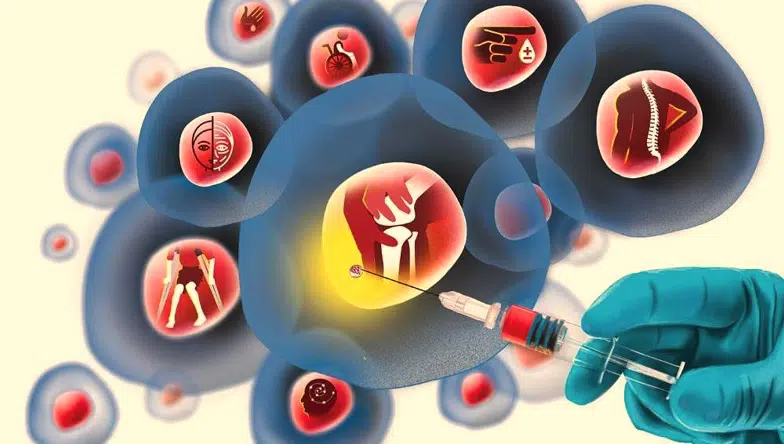LDN, or low-dose naltrexone, has gained popularity as an off-label treatment for a variety of conditions, including chronic pain, fatigue, and autoimmune diseases. While many people have reported significant benefits from LDN, it's essential to be aware of the potential negative side effects of LDN that may accompany its use.
Common Negative Side Effects of LDN
While LDN is generally well-tolerated, some individuals may experience mild negative side effects of LDN. These commonly include:
- Insomnia: Difficulty falling asleep or staying asleep is a common side effect, particularly in the initial stages of LDN treatment. It can manifest as difficulty falling asleep, frequent awakenings during the night, or early morning waking.
- Decreased Appetite: Reduced appetite can lead to weight loss. It's crucial to monitor your intake and consult with a healthcare provider if this becomes a concern. This can be especially challenging for people who already have difficulty maintaining a healthy weight.
- Headache: Mild to moderate headaches can occur, especially during dosage adjustments. These headaches can range from mild to moderate in severity and may be accompanied by other symptoms such as nausea or dizziness.
- Nausea: Some people may experience nausea, particularly when starting LDN or increasing the dosage. This nausea can be mild or severe and may be accompanied by vomiting.
- Anxiety: Increased anxiety or nervousness is another potential side effect, although it's less common. This can manifest as feelings of restlessness, irritability, or difficulty concentrating.
- Dizziness: Feelings of dizziness or lightheadedness may occur, especially when standing up quickly. This can be a particular problem for older adults or people with balance problems.
- Arthralgia: Joint pain or stiffness can be experienced by some individuals. This pain can range from mild to severe and may affect any joint in the body.
- Stomach Pain: Abdominal discomfort or pain may arise, particularly when taking LDN on an empty stomach. This pain can be mild or severe and may be accompanied by other symptoms such as bloating or diarrhea.
- Tiredness: Fatigue or tiredness can be a side effect, especially during the initial adjustment period. This fatigue can interfere with daily activities and make it difficult to concentrate.
- Constipation: Some individuals may experience constipation, while others may have the opposite effect, such as diarrhea. Constipation can be a particularly bothersome side effect, as it can lead to abdominal pain and discomfort.
- Fever: Low-grade fever can occur, especially during the initial stages of treatment. This fever is usually mild and goes away on its own.
- Injection Site Reaction: If LDN is administered via injection, there may be mild reactions at the injection site, such as redness or swelling. These reactions are usually mild and go away within a few days.
Less Common But Serious Negative Side Effects of LDN
While rare, it's important to be aware of more serious negative LDN side effects:
- Jaundice: Yellowing of the skin or eyes can be a sign of liver problems. Jaundice occurs when bilirubin, a yellow pigment that is produced when red blood cells break down, builds up in the blood. This can happen if the liver is not functioning properly, or if there is a problem with the way bile flows from the liver to the gallbladder and small intestine.
- Hepatotoxicity: Liver damage is a serious side effect that can occur, although it's uncommon. Hepatotoxicity can cause a variety of symptoms, including jaundice, fatigue, loss of appetite, nausea, vomiting, and abdominal pain. In severe cases, hepatotoxicity can lead to liver failure.
- Muscle Cramps: Muscle cramps or spasms may develop in some individuals. Muscle cramps can be caused by a variety of factors, including dehydration, electrolyte imbalance, and muscle overuse.
- Respiratory Issues: Difficulty breathing or other respiratory problems can occur, although this is rare. Respiratory issues can be caused by a variety of factors, including allergies, asthma, and lung infections.
- Vivid Dreams: Some people may experience more vivid or intense dreams. Vivid dreams can be a normal side effect of LDN, and they usually do not cause any problems. However, in some cases, vivid dreams can be disturbing or disruptive to sleep.
Managing Side Effects
If you experience any side effects from LDN, it's essential to communicate with your healthcare provider. They can help you manage these side effects and adjust your dosage if necessary.
Here are some tips for managing LDN side effects:
- Start with a Low Dose and Titrate Up Gradually: Begin with a low dose of LDN and gradually increase it as tolerated to minimize side effects. This allows your body to adjust to the medication and reduces the likelihood of experiencing severe side effects.
- Take LDN with Food: Taking LDN with food can help reduce digestive issues like nausea and stomach pain. This is because food can help to slow down the absorption of the medication and reduce the irritation to the stomach lining.
- Stay Hydrated: Drinking plenty of water can help alleviate some side effects, such as constipation and headaches. Dehydration can worsen these symptoms, so it's important to stay hydrated throughout the day.
- Get Adequate Rest: Ensure you're getting enough sleep to help manage fatigue and other side effects. Sleep is essential for the body to repair itself and recover from the stresses of daily life.
- Monitor Your Symptoms: Keep track of any side effects you experience and discuss them with your healthcare provider. This will help your healthcare provider to identify any potential problems and adjust your treatment plan as needed.
- Consider Taking LDN at Bedtime: Taking LDN at bedtime can help to reduce insomnia and other sleep disturbances. This is because LDN can sometimes cause vivid dreams or nightmares, which can disrupt sleep. Taking the medication at bedtime can help to minimize these effects.
- Try Taking LDN with a Snack: If you experience nausea or stomach upset, try taking LDN with a small snack, such as a cracker or a piece of toast. This can help to reduce the irritation to your stomach lining.
- Be Patient: It may take several weeks for your body to adjust to LDN. During this time, you may experience some side effects. However, these side effects should gradually improve as your body becomes accustomed to the medication.
- Don't Stop Taking LDN Without Talking to Your Doctor: If you're experiencing side effects, don't stop taking LDN without talking to your doctor. Your doctor may be able to adjust your dosage or recommend other strategies to help you manage your side effects.
When to Seek Medical Attention?
It's important to seek immediate medical attention if you experience any of the following:
- Severe allergic reactions, such as difficulty breathing, swelling of the face, lips, tongue, or throat.
- Persistent or worsening liver problems, indicated by jaundice or dark urine.
- Severe muscle pain or weakness.
- Persistent or severe headaches.
- Unusual bleeding or bruising.
Conclusion
While LDN can be a helpful treatment for many conditions, it's crucial to be aware of its potential side effects. By working closely with your healthcare provider and following their guidance, you can minimize the risk of side effects and maximize the benefits of LDN.
Shiney Wellness: No. 1 Stem Cell Therapy Center
Shiney Wellness stands out as the no. 1 stem cell therapy center, committed to offering innovative treatments that harness the body's natural healing potential. With a team of highly skilled medical professionals, Shiney Wellness provides personalized care in a state-of-the-art facility. They specialize in regenerative therapies designed to alleviate pain, support recovery, and improve quality of life. By using cutting-edge technology and adhering to the highest standards of safety, Shiney Wellness ensures optimal results for patients seeking alternative solutions for chronic conditions. Trust Shiney Wellness as your partner in achieving enhanced wellness through stem cell therapy.
Disclaimer: This blog post is for informational purposes only and should not be considered medical advice. Always consult with a qualified healthcare provider before starting any new medication or treatment.




